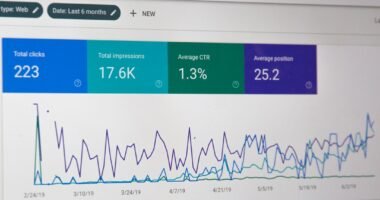Social media marketing managers’ salaries typically range from $50,000 to $90,000 annually, with experienced professionals potentially earning over $100,000. Factors influencing compensation include experience, education, location, company size, and industry. Many positions offer performance-based bonuses or commissions in addition to base salary.
These professionals are responsible for developing and implementing marketing strategies across various social media platforms, including Facebook, Instagram, Twitter, and LinkedIn. Their duties involve analyzing campaign performance and making necessary adjustments to meet company objectives. The growing importance of social media in the digital landscape has increased demand for skilled social media marketing managers.
This trend is likely to continue as businesses recognize the value of a strong social media presence, potentially leading to higher salaries in the field. Social media marketing managers’ roles are crucial in today’s business environment, combining strategic planning, content creation, and data analysis to effectively promote brands and engage with target audiences on digital platforms.
Factors that Influence Social Media Marketing Manager Salaries
Experience Matters
One of the most significant factors is experience. Social media marketing managers with several years of experience in the field are likely to command higher salaries than those who are just starting out.
Education and Certifications
Additionally, education can also play a role in determining salary. Those with advanced degrees or specialized certifications in digital marketing may be able to negotiate higher salaries than those with only a bachelor’s degree.
Location, Company Size, and Industry
Location is another important factor that can influence a social media marketing manager’s salary. In general, salaries tend to be higher in major metropolitan areas where the cost of living is higher. However, companies in these areas may also have larger budgets for marketing, which can lead to higher salaries for social media marketing managers. The size and industry of the company can also impact salary. Larger companies and those in industries with high competition may be willing to pay more for top talent in order to stay ahead of their competitors.
In conclusion, several factors can influence the salary of a social media marketing manager, including experience, education, location, and the size and industry of the company. Those with more experience and advanced education may be able to negotiate higher salaries, while location and company size and industry can also play a role in determining compensation.
Understanding the Role of Influencers in Social Media Marketing

Influencers play a crucial role in social media marketing by leveraging their large and engaged followings to promote products and services. These individuals have built a reputation and a loyal audience around a specific niche or industry, making them valuable partners for brands looking to reach their target market. Influencers can create authentic and relatable content that resonates with their followers, making them more likely to trust and act on their recommendations.
This can be especially effective for brands looking to connect with younger consumers who are increasingly turning to social media for product recommendations and reviews. Influencers come in various forms, including celebrities, industry experts, and micro-influencers with smaller but highly engaged followings. Each type of influencer offers unique benefits and can be leveraged in different ways depending on the brand’s goals and target audience.
By partnering with influencers, brands can tap into their credibility and reach to expand their own audience and drive sales. As such, understanding the role of influencers in social media marketing is essential for social media marketing managers looking to create successful campaigns. In conclusion, influencers play a crucial role in social media marketing by leveraging their large and engaged followings to promote products and services.
By creating authentic and relatable content that resonates with their followers, influencers can help brands connect with their target market and drive sales.
The Importance of an Influencer Database for Social Media Marketing Managers
An influencer database is a valuable tool for social media marketing managers looking to identify and partner with influencers for their campaigns. This database contains detailed information about various influencers, including their niche, audience demographics, engagement rates, and past collaborations. By using an influencer database, social media marketing managers can quickly and easily find influencers who align with their brand’s values and target audience.
This can save time and resources compared to manually researching and reaching out to potential influencers. In addition to streamlining the influencer identification process, an influencer database can also help social media marketing managers track the performance of their influencer partnerships. By monitoring key metrics such as engagement rates, click-through rates, and conversions, they can determine which influencers are delivering the best results for their campaigns.
This data-driven approach can help them make informed decisions about which influencers to continue working with in the future. In conclusion, an influencer database is an important tool for social media marketing managers looking to identify and partner with influencers for their campaigns. By streamlining the influencer identification process and tracking the performance of their partnerships, they can make informed decisions that drive results for their brands.
Utilizing User-Generated Content (UGC) in Social Media Marketing
User-generated content (UGC) refers to any form of content created by consumers rather than brands. This can include customer reviews, testimonials, photos, videos, and social media posts that feature a brand’s products or services. UGC is highly valuable for social media marketing managers because it is authentic and relatable, making it more likely to resonate with consumers.
By leveraging UGC in their campaigns, brands can build trust with their audience and create a sense of community around their products or services. In addition to its authenticity, UGC is also cost-effective for brands. Rather than creating all of their content in-house, they can tap into the creativity of their customers to generate a steady stream of content.
This not only saves time and resources but also helps brands connect with their audience on a deeper level by showcasing real-life experiences with their products or services. In conclusion, user-generated content (UGC) is highly valuable for social media marketing managers because it is authentic and relatable, making it more likely to resonate with consumers. By leveraging UGC in their campaigns, brands can build trust with their audience and create a sense of community around their products or services.
The Impact of UGC Creator Marketing on Social Media Marketing Manager Salaries

The Emergence of New Collaboration Opportunities
UGC creator marketing has also created new avenues for collaboration between brands and content creators. By partnering with creators who have built a loyal following around a specific niche or industry, brands can tap into their credibility and reach to expand their own audience and drive sales. This has led to an increase in demand for skilled social media marketing managers who can effectively identify and partner with relevant creators for their campaigns.
Driving Up Demand for Skilled Professionals
The rise of UGC creator marketing has driven up demand for social media marketing managers who can effectively leverage this type of content to drive results. As brands continue to recognize the value of UGC, the demand for skilled professionals who can navigate these campaigns will only continue to grow.
A New Era for Social Media Marketing Managers
In conclusion, the rise of UGC creator marketing has significantly impacted social media marketing manager salaries by driving up demand for professionals who can effectively utilize this type of content to drive results. As the marketing landscape continues to evolve, social media marketing managers who can adapt to these changes will be in high demand.
Tips for Negotiating a Competitive Salary as a Social Media Marketing Manager
Negotiating a competitive salary as a social media marketing manager requires preparation and confidence. One tip is to research industry standards for salaries in your area and use this information as leverage during negotiations. By demonstrating that you have a clear understanding of your market value, you can make a stronger case for why you deserve a higher salary.
Another tip is to highlight your specific achievements and contributions in previous roles. By quantifying your impact on past campaigns or projects, you can show potential employers that you have a track record of delivering results. This can make you a more attractive candidate and give you more leverage when negotiating your salary.
In addition to highlighting your achievements, it’s important to communicate your long-term value to the company. By demonstrating how your skills and experience will contribute to the company’s growth and success, you can make a stronger case for why you deserve a higher salary. In conclusion, negotiating a competitive salary as a social media marketing manager requires preparation and confidence.
By researching industry standards, highlighting your achievements, and communicating your long-term value to the company, you can increase your chances of securing a higher salary offer.
If you’re interested in learning more about the world of social media marketing, you might want to check out this article on The Role of Influencers in Social Media Marketing. It provides valuable insights into how influencers can impact a company’s social media strategy and overall marketing efforts. Understanding the role of influencers can be crucial for social media marketing managers as they navigate the ever-changing landscape of digital marketing.
FAQs
What is a social media marketing manager?
A social media marketing manager is responsible for creating and implementing a company’s social media strategy. They are in charge of managing and growing the company’s social media presence on platforms such as Facebook, Instagram, Twitter, and LinkedIn.
What does a social media marketing manager do?
A social media marketing manager is responsible for creating and curating engaging content, analyzing and reporting on social media performance, managing social media advertising campaigns, and staying up-to-date with the latest social media trends and best practices.
What factors influence the salary of a social media marketing manager?
The salary of a social media marketing manager can be influenced by factors such as the level of experience, the size and industry of the company, the location, and the specific responsibilities of the role.
What is the average salary of a social media marketing manager?
The average salary of a social media marketing manager varies depending on the location and the level of experience. According to PayScale, the average salary for a social media marketing manager in the United States is around $50,000 to $70,000 per year.
How can a social media marketing manager increase their salary?
A social media marketing manager can increase their salary by gaining more experience, obtaining relevant certifications, staying updated with the latest social media trends, and taking on more responsibilities within their role. They can also negotiate for a higher salary when starting a new job or during performance reviews.






